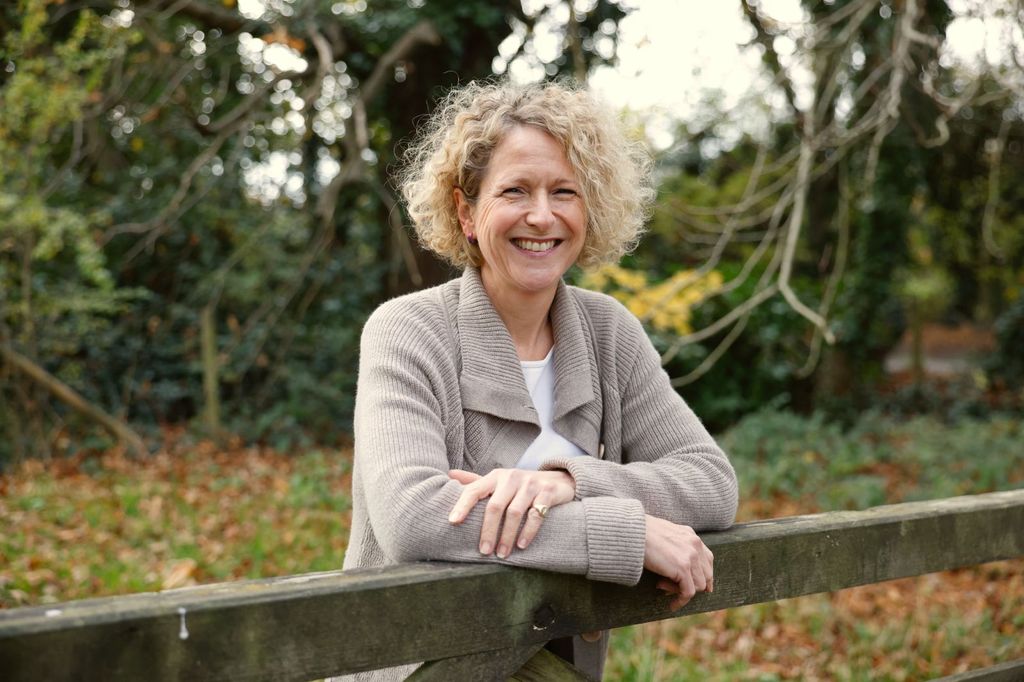It is said that divorce or splitting from a serious, long-term relationship is the second most traumatic thing a person can go through, after the death of a loved one.
Whether the breakdown in marriage comes out of the blue or not, when you are trying to dismantle your old life and plan for the reality of a new, unexpected future, it can be hard to know where to start.
With children, pets, pensions and property to consider, it is not as clear-cut as splitting everything 50:50. This is where a divorce coach can come in and de-mystify the process by helping you to navigate the pain, grief and practical jobs you need to do to move forward with your life.
Introducing Arabella
Having been through an unexpected marriage split in midlife, former banker turned divorce coach, and mother-of-two, Arabella Paul, has the powerful combination of personal experience and professional training on how to navigate the rollercoaster of a divorce.
“I discovered my husband was having an affair just before lockdown which was a total shock,” says Arabella. “When it came to getting a divorce, I had no idea what to expect. A friend recommended a lawyer, and I went with them, but I wish I’d had a coach to guide me through.”
Retraining in midlife
Arabella decided to retrain and use her own life-changing experience to help others, launching The Divorce Survival Coach.
“Like a lot of the women I work with, I had given up a successful job working in banking after I had my first son, then after my breakup, I had to start again.
“I worked in headhunting for a while but I realised I wanted to help others, mostly women like me in midlife, so they wouldn’t make common mistakes as they went through a divorce. I am a strategic thinker and solution-based which I find a lot of people appreciate.”
How to work with a divorce coach
There are many reasons to work with a divorce coach, whether it is cost or the emotional and practical support when things get too much.
“It can be so overwhelming, and a lot of people don’t know where to start when it comes to divorcing, so I can offer practical and emotional support from the very beginning,” says Arabella.
“Lawyers can charge around £50 for every six minutes of their time, so if you are firing off emails to ask small queries or complain about what your ex-partner has done, rather than getting to the point, it can all add up.
“I also often find people are stuck and can freeze at simple, yet overwhelming, requests such as printing off three months of bank statements. I coach them through this, either in person by spending six hours at their home going through a checklist, or answering questions over email, WhatsApp and voice notes to keep them moving forward with emotional support, which means lawyers aren’t charging them for chasing emails and they are better prepared.”
Counsellor V Coach
There is a difference between hiring a coach over a counsellor during divorce, says Arabella.
While counsellors may help you to not repeat the same relationship patterns of the past, a coach can offer practical help in looking forward and sign post you to the people who can help you do so.
“A coach can say, ‘Right, if you were to move to Dorset, let’s talk about what that might be like’, helping you make a decision. You can unpack all the options and solve problems as you go.”
What is important to remember, even on those days when you feel unable to lift your head off the pillow, is that there is light at the end of the tunnel and a coach can also give you the self-care tools to help you focus on this.
“I’m a positive person and I want others to know that no matter how awful it is when you are going through it, this is just a chapter in your life,” says Arabella.
“It’s not the whole story. It’s just part of your life and you get to write the next chapter. You will love again, and be yourself once again.”
How to survive divorce in midlife
1. The three-month test
“I would say to all of my friends and clients who are thinking of divorcing to give themselves three months.
“You do not want to start a divorce you may later regret. If you give your relationship your all for three months and still feel the same way, then you know it is time to move on.”
2. Interview solicitors
“I would recommend calling five solicitors and ask them the same questions to find the right one for your situation. Everyone’s divorce is different, and you don’t want to just use the person a friend recommends.
“You want your solicitor to be an expert in the areas that affect your divorce. This may be professionally where they perhaps have an understanding of working in the city, previous knowledge of cases working with abusive or toxic relationships, or international issues where perhaps clients are from different countries.”
3. Be civil
“‘Love your kids more than you hate your partner’ is a phrase I often say. Divorce is not bad for your children; it’s the conflicts that cause issues, be it conflicts in divorce or conflicts in the marriage.
“Don’t stay married for your children. And remember they are still 50 per cent of your ex, so try and keep your anger towards your ex away from them so they don’t take it personally.”
4. Shift your mindset
“This is hard when you are in the thick of it, but one thing I believe in is to be proactive, not reactive.
“Talk to yourself positively. I work through emotional techniques for breathing, dressing for success, being prepared and confident in mediation meetings – down to choosing the right song to blast out on the way to the meeting to feel empowered.”
5. Be aware of red flags
“If your ex-partner is encouraging you not to have a lawyer, that is a big warning that you may need to do the opposite. You need to be armed with your team and be prepared for every meeting. The right people supporting you is huge.”
6. Get familiar with a Form E
“This can be found on the government website and outlines all of the financial details that are required to help with a fair split of assets. A lot of people think that divorce is going to court, but many family solicitors I have met aim to try and resolve it out of court as much as possible.”
7. Keep an eye on finances
“It is easy to record your divorce yourself on the government website, but you will pay double if you ask a solicitor to do it for you. Also keep a record of how long you speak to your solicitor, or how many emails you have sent and received, to make sure you are not overcharged.”
Read the full article here










